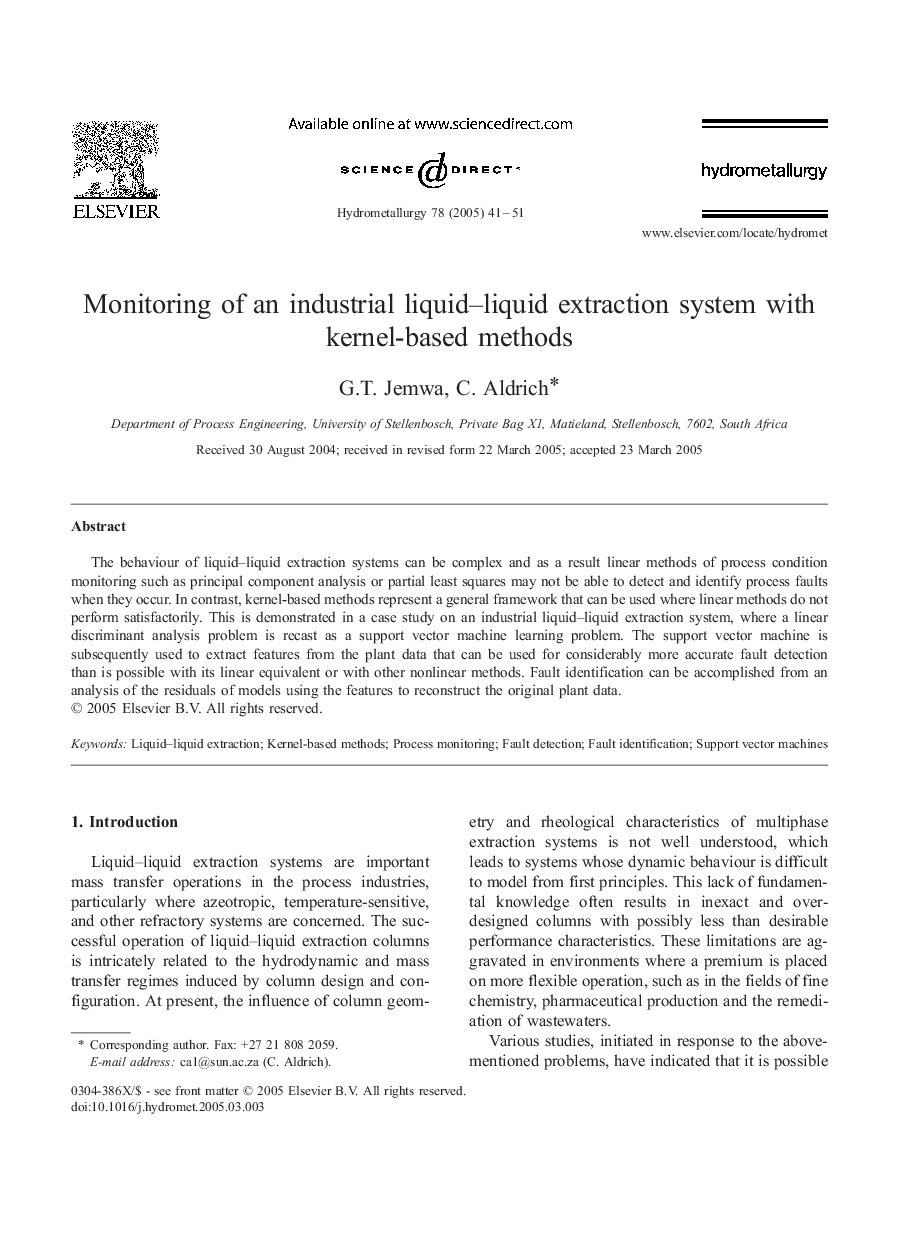| Article ID | Journal | Published Year | Pages | File Type |
|---|---|---|---|---|
| 9632557 | Hydrometallurgy | 2005 | 11 Pages |
Abstract
The behaviour of liquid-liquid extraction systems can be complex and as a result linear methods of process condition monitoring such as principal component analysis or partial least squares may not be able to detect and identify process faults when they occur. In contrast, kernel-based methods represent a general framework that can be used where linear methods do not perform satisfactorily. This is demonstrated in a case study on an industrial liquid-liquid extraction system, where a linear discriminant analysis problem is recast as a support vector machine learning problem. The support vector machine is subsequently used to extract features from the plant data that can be used for considerably more accurate fault detection than is possible with its linear equivalent or with other nonlinear methods. Fault identification can be accomplished from an analysis of the residuals of models using the features to reconstruct the original plant data.
Keywords
Related Topics
Physical Sciences and Engineering
Chemical Engineering
Chemical Engineering (General)
Authors
G.T. Jemwa, C. Aldrich,
